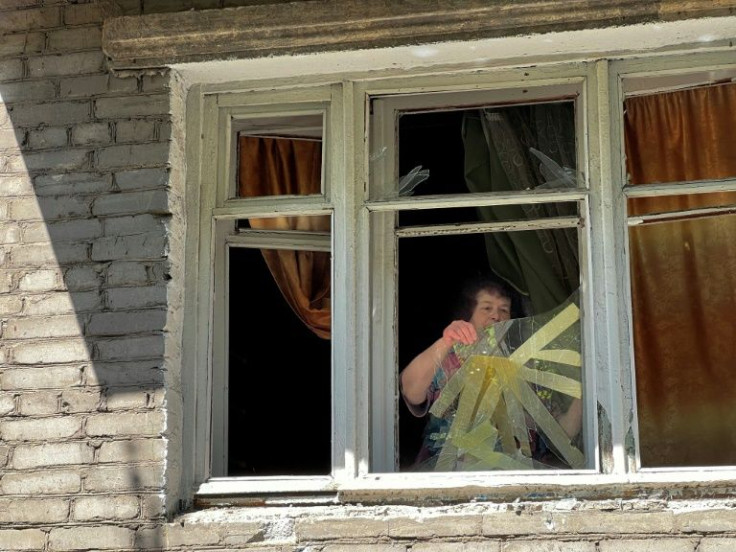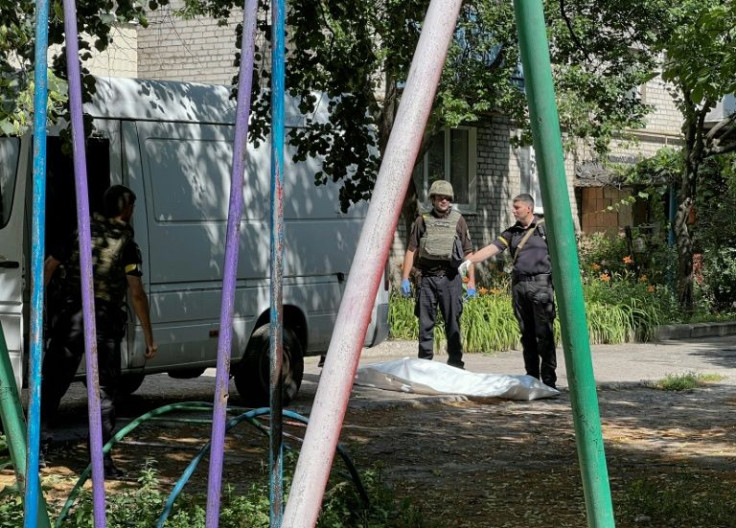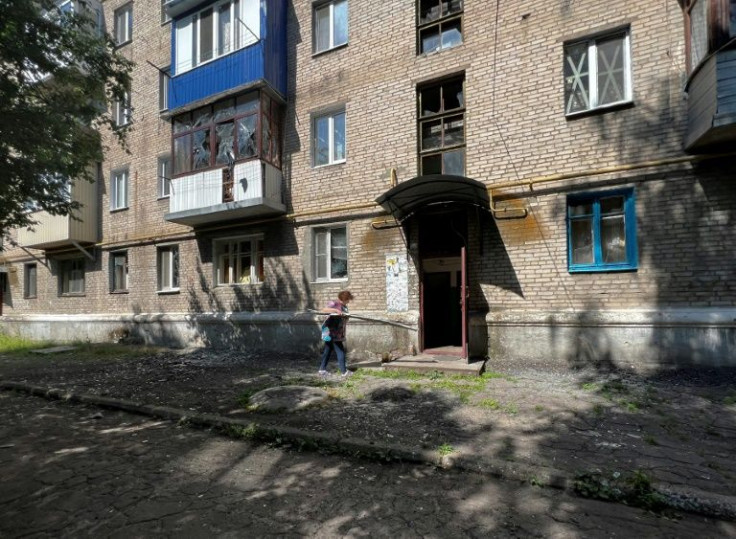Blood And Fears As Russian Missile Hits Flats In East Ukraine City
A man's body still wearing one slipper lay in a courtyard in the centre of Sloviansk in east Ukraine Monday after a morning strike hit apartment blocks in the strategic city.
Police lifted the body of the man, named as Igor by neighbours, and loaded him into a van to go to the morgue, leaving streaks of blood on the ground.
The city's mayor, Vadim Lyakh, was at the scene along with police and rescuers shortly after the strike at around 8:30 (0530 GMT).
"We are establishing (the toll), but there is one definitely dead and three wounded," Lyakh told AFP as locals, mostly elderly, swept up shards of glass.

A policeman said that the injured had shrapnel wounds, while a local 84-year-old woman who gave her name as Babushka (Grandma) Tamara, said a female neighbour had been hospitalised with a shrapnel wound to the chest.
"Not at night, but in the daytime, how much more can we take?" a policeman asked a colleague.
Sloviansk, a sleepy green city, is now experiencing heavy strikes as Russians shell it from just a few kilometres away, advancing from the north. The city has already lost water and gas supplies.
Surveying her row of cracked and blown-out windows on the ground floor and shrapnel-scored wallpaper, Tatiana Levchenko lamented: "How can I live? All the rooms are damaged, see?"
"It's such grief for us," the 67-year-old said, pointing to her cat hidden under the sofa from fear and her hamster in his cage in the dark hallway. Her daughter and grandchildren have already left for Lviv in western Ukraine.

"Where will I go, all of Ukraine is under fire! You see, there's nowhere to hide," she exclaimed.
"Things are bad for us, very bad. Everyone has cried themselves out. I have no strength left."
Outside the next block, Natalya Petrova had come out in her house coat to survey her broken windows and shrapnel-pitted facade.
She said she was napping after seeing off her husband to work when the explosion rang out.
Her family's house in a village had already been damaged in the war and now her city flat too.

"We have no housing there -- or here," she said, tears in her eyes.
A series of strikes overnight and on Monday morning appeared to use cluster rockets, which scatter bomblets over a large area, exploding on the ground and hitting people walking outside or in buildings.
There were no obvious military facilities nearby, although soldiers were towing away a camouflage van parked on the street.
The central area has "no military facilities" and Russia is at war with civilians, Lyakh wrote on Facebook, urging people to evacuate.
What appeared to be an Uragan missile stuck out of the ground in a courtyard some 100 metres from where Igor's body lay.
"We were saved by a miracle," said one woman, wearing jeans and a red T- shirt, sweeping up broken glass.
Workers came with big rolls of film to cover up broken windows.
A policewoman was telling locals to take photographs of the damage to their flats in order to claim compensation.
Overnight, an apparent cluster rocket had previously hit a street on the outskirts of the city, breaking windows and scattering shrapnel.
Locals said they had frequently seen drones overhead but added a nearby military facility was no longer being used.
Oleksandr, a 39-year-old market trader, showed how shrapnel had made holes in his car, shattered house windows and wounded one of his Alsatian dogs.
The war damage is deja-vu for locals like him, who previously saw Russia-backed separatists take control of the city in 2014 for a period of months.
Oleksandr pointed to the holes in his metal gate, some fresh and others dating back to 2014.
"I didn't replace my gate. It's like something told me not to," he said wryly.
© Copyright AFP {{Year}}. All rights reserved.





















